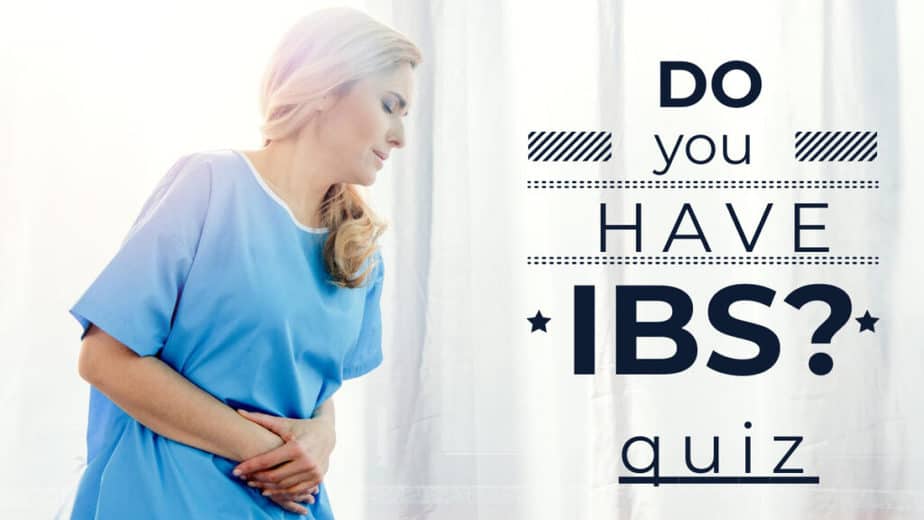Whether or not you have been diagnosed with IBS (irritable bowel syndrome), seeing mucus in your stool can be concerning.
There are several reasons why you may be experiencing this symptom.
Keep reading to find out whether the mucus in your stool is caused by irritable bowel syndrome, and what the other causes could be.
What is IBS?
Irritable bowel syndrome is a condition that affects the digestive system. It is fairly common and the cause is unknown. It is often a lifelong condition. Whilst it can be frustrating to live with, it is not considered serious.
The most common symptoms of irritable bowel syndrome are painful stomach cramps, uncomfortable bloating, constipation, and diarrhea.
Other symptoms include flatulence, tiredness or a lack of energy, nausea, bowel incontinence, and needing to urinate frequently.
There is no cure, but there are things you can do to try and manage your IBS symptoms. Avoiding triggers can reduce the number of flare-ups you experience.
Triggers vary from person to person, but some of the most common IBS triggers are alcohol, caffeine, spicy or fatty foods, or stress and anxiety. It might be helpful to keep a food and mood diary to help identify your triggers.
- Related Article: Is IBS a Autoimmune Disease?
Does IBS Cause Mucus In Stool?
As we explained above, there are many symptoms of irritable bowel syndrome which vary from person to person. Passing mucus in your stool is a symptom that affects many sufferers of irritable bowel syndrome.
Mucus has an important function and is involved in many metabolic processes in the human body such as respiration, digestion, and urination.
It is released by mucous membranes to moisten and protect various linings within the body.
It is normal for mucus to be secreted by the bowel, but for most people the amounts of mucus are so negligible that it cannot be seen.
Irritable bowel syndrome can cause increased amounts of mucus to be secreted, making it visible in the stool.
Mucus can vary greatly in color and texture, but mucus in the stool is often white or clear. It can also take on the colour of the feces.
It is not clear exactly why irritable bowel syndrome can cause mucus to appear in the stool.
Some researchers believe it is linked to inflammation of the bowel, but more work needs to be done to determine the exact cause.
One study found that men are twice as likely as women to report experiencing mucus in their stool as a symptom of irritable bowel syndrome.
Another study found that around half of irritable bowel syndrome sufferers reported mucus in stool as a symptom.
The good news is that if you suffer with irritable bowel syndrome and you notice mucus in your stool, this is not a cause for concern.
It does not indicate a serious health problem and is a common occurrence for people with this condition.
Other Causes Of Mucus in Stool:
Crohn’s Disease
Crohn’s Disease is a complex condition caused by inflammation of the gastrointestinal tract. Symptoms include abdominal pain, mucus and blood in stool, diarrhea, and weight loss.
This is a serious condition which can lead to sufferers being hospitalized.
Lactose Intolerance
Lactose intolerance is the phrase used to describe when your body struggles to digest lactose, a certain protein found in dairy products.
It can cause symptoms similar to irritable bowel syndrome like mucus in stool, abdominal cramps and diarrhea. The symptoms occur directly after consuming lactose.
Celiac Disease
Celiac disease is an autoimmune disease which causes white blood cells to attack the lining of your small intestine.
This is triggered by the presence of gluten, which is found in foods like wheat and barley. Mucus on the stool is one of many symptoms including headaches, abdominal pain and diarrhea.
Ulcerative Colitis
Ulcerative colitis is a type of inflammatory bowel disease. It is considered a chronic disease and unfortunately there is no known cure.
There are several types of Ulcerative Colitis which require different types of treatment to manage the symptoms.
Symptoms of this disease include diarrhea, blood and mucus in stool, abdominal pain, rectal pain, loss of appetite and weight loss.
Bacterial Infection
The sudden appearance of mucus in the stool along with blood, diarrhea, abdominal cramps and a fever could indicate a bacterial infection. If you experience these symptoms please seek urgent medical advice.
Dehydration and Constipation
The natural function of mucus in the body is to moisten linings to protect them. It makes sense, then, that if you are constipated or your stool is dry due to dehydration, your body will try to do something about it.
Producing more mucus to be secreted from your bowel at the same time as your stool will protect you from anal fissures or tears and will help the stool to leave the body.
If you already have anal fissures, this is another reason your body may release greater amounts of mucus from the bowel.
When to Seek Medical Advice
If you suffer with irritable bowel syndrome then the chances are you know your body and your bowel movements pretty well!
Whilst mucus in the stool is nothing to be concerned about, if it is a new symptom for you or it is accompanied by other symptoms you don’t usually experience, it might be a good idea to let your doctor know.
They may want to do a stool sample to make sure everything is as it should be.
Top Tips for Managing IBS:
Keep a diary
Track your symptoms in relation to food, activity and mood. This will help you to identify your personal triggers.
If you are struggling to figure out which foods are causing the problem, strip back your diet to very simple and plain foods and gradually re-introduce other ingredients until you notice your symptoms return.
Diet
Using fresh ingredients can help to reduce the symptoms of irritable bowel syndrome.
By cooking your meals yourself, you can control exactly what is going in and reduce the amount of fatty or spicy foods that could trigger a flare up.
You can also supplement a healthy diet of home cooked meals with probiotics. Avoid fizzy drinks where possible and keep alcohol and caffeine consumption to a minimum.
Try not to eat more than 3 portions of fruit per day, as this can worsen bloating and flatulence. Eat regularly, and try to avoid skipping meals.
Exercise
When you feel bloated and uncomfortable you may not be in the mood to exercise, but it can really help with symptom management. Even a gentle walk could benefit you, so give it a try.
Relaxation
Stress and anxiety can cause IBS flare-ups, so try and find ways to relax. A nice hot bath, yoga, getting fresh air, or relaxing with a book or in front of the television – find what works for you.
For more articles on IBS, access these articles:



